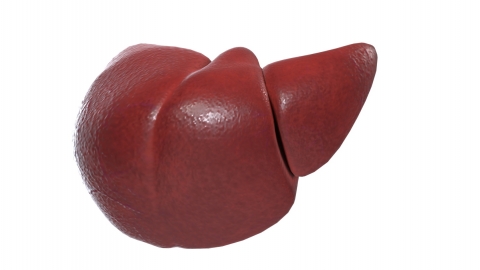What to do for advanced intrahepatic cholangiocarcinoma
In general, the main treatment approaches for advanced intrahepatic cholangiocarcinoma include palliative surgery, targeted therapy, chemotherapy, symptomatic supportive care, and traditional Chinese medicine (TCM). Specific analyses are as follows:

1. Palliative Surgery
If biliary tract obstruction occurs in advanced intrahepatic cholangiocarcinoma, bile stasis may lead to jaundice and liver function damage. In such cases, palliative surgery is required to relieve the obstruction. Common procedures include biliary stent placement and biliary-enteric anastomosis, which can restore bile drainage, alleviate jaundice, improve liver function, and enhance patients' quality of life.
2. Targeted Therapy
For advanced intrahepatic cholangiocarcinoma with specific gene mutations or fusion sites, targeted drugs can precisely act on cancer cells to inhibit tumor growth. Under medical guidance, patients may use medications such as pemigatinib tablets, infigratinib capsules, and futuximab injection. These drugs specifically block signaling pathways involved in cancer cell proliferation, thereby slowing tumor progression.
3. Chemotherapy
Chemotherapeutic agents are used to kill cancer cells throughout the body, control tumor spread, and relieve symptoms. Patients may follow physician instructions to use drugs such as gemcitabine for injection, cisplatin for injection, and capecitabine tablets. These medications can be used in combination to enhance antitumor efficacy, reduce tumor burden, and prolong survival.
4. Symptomatic and Supportive Care
Patients with advanced intrahepatic cholangiocarcinoma often experience symptoms such as pain, fatigue, and malnutrition, which require targeted interventions. For significant pain, analgesics such as morphine sulfate sustained-release tablets, oxycodone hydrochloride sustained-release tablets, and fentanyl transdermal patches may be used under medical supervision. In cases of malnutrition, enteral nutritional formulations or parenteral nutrition support can help meet basic metabolic needs. For ascites, spironolactone tablets and furosemide tablets may be appropriately used to reduce fluid accumulation and relieve abdominal distension.
5. Traditional Chinese Medicine (TCM)
According to TCM theory, advanced intrahepatic cholangiocarcinoma is often associated with liver qi stagnation, damp-heat stasis, and deficiency of qi and blood. Treatment focuses on soothing the liver and promoting bile flow, clearing heat and detoxifying, and replenishing qi and nourishing blood. Under the guidance of a TCM practitioner, patients may use herbal medicines such as Xiaoyao Pills, Huaier Granules, and Compound Banmao Capsules. Acupuncture may also be combined to regulate qi and blood, improve symptoms like fatigue and poor appetite, and enhance the body's tolerance to treatments.
In addition, patients should maintain a positive mindset during treatment, with family members providing psychological support. Regular follow-up tests—including liver function, tumor markers, and imaging studies—are essential to monitor disease progression. A diet consisting of light, easily digestible, high-protein foods is recommended, while greasy and spicy foods should be avoided to reduce liver strain. If adverse drug reactions occur or symptoms worsen during treatment, prompt medical consultation is necessary to adjust the treatment plan.




